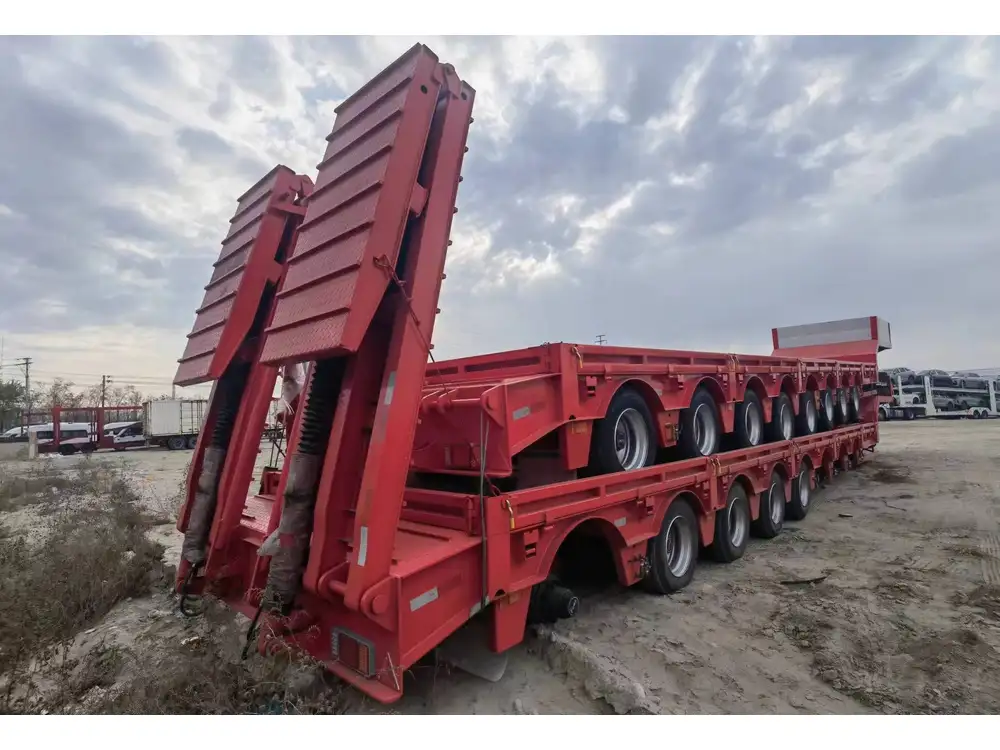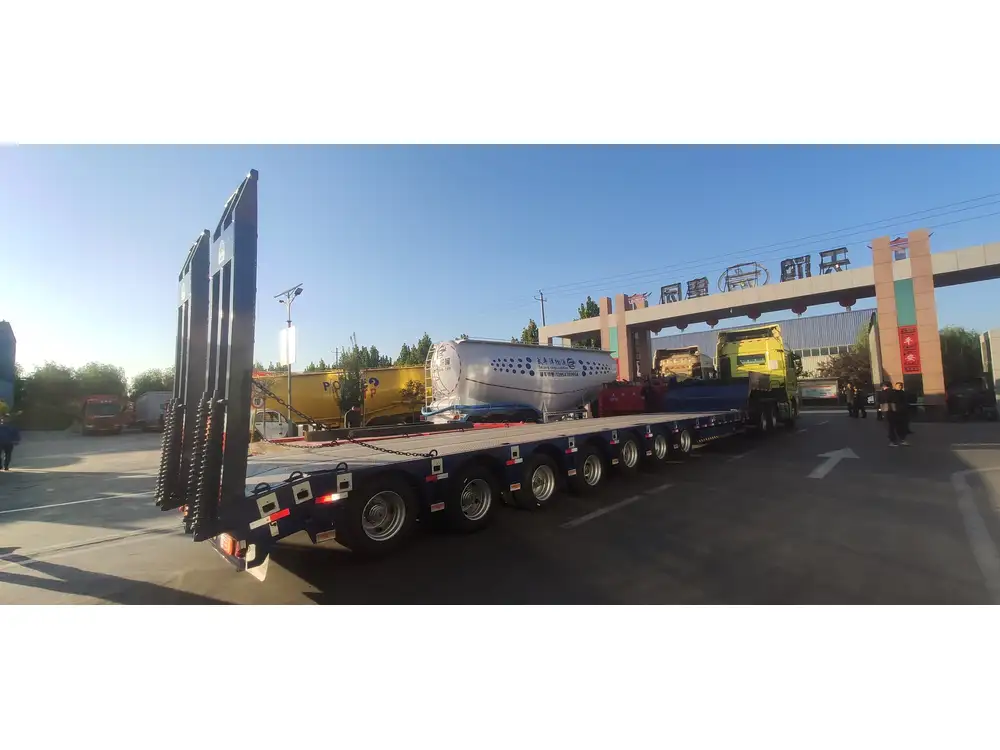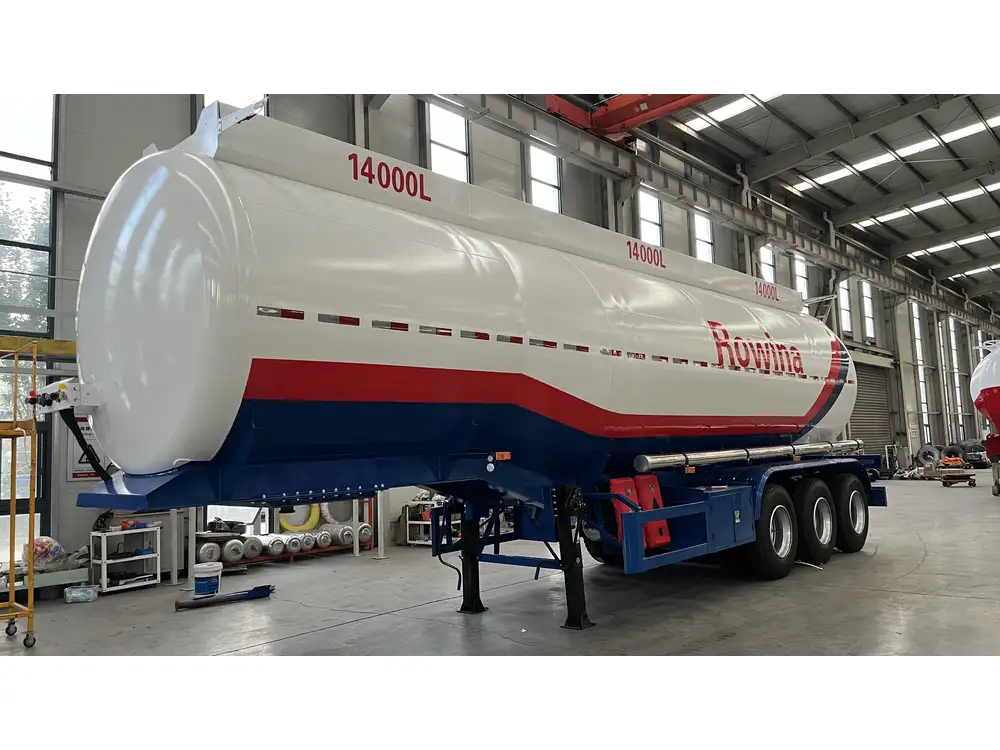When it comes to operating a semi-trailer, understanding the registration process is fundamental. The registration of semi-trailers varies significantly between jurisdictions, impacting operational costs, compliance, and logistics. This article aims to provide a comprehensive guide on where to register semi-trailers, outlining necessary steps, requirements, and common pitfalls to avoid—all while enhancing your operational efficiency.
Understanding Semi-Trailer Registration
What is Semi-Trailer Registration?
Semi-trailer registration is the legal process required for a semi-trailer to be recognized by governmental authorities, allowing it to operate on public roads. Registering your vehicle signals compliance with local laws, helps avoid fines, and ensures proper identification in the event of theft or accidents.

Why is Registration Important?
The registration of your semi-trailer is not merely a bureaucratic hurdle; it serves multiple purposes:
Legal Compliance: Ensures adherence to state and federal transportation regulations.
Identification: Facilitates tracking and identification of ownership, essential in case of disputes.
Insurance: Many insurance companies require proof of registration to provide coverage.
Safety Inspections: Registered vehicles are often subject to stricter safety regulations and inspections.
Key Considerations for Registration
Before diving into the registration process, several factors need consideration:
- Type of Use: Are you using the semi-trailer for personal or commercial purposes?
- State Laws: Requirements vary significantly across states. Familiarity with your local regulations is critical.
- Weight Classification: The weight of your trailer can influence registration fees and requirements.
Step-by-Step Guide to Registering Your Semi-Trailer

Step 1: Gather Necessary Documentation
Before visiting your local vehicle registration office or completing an online application, ensure you have the following documents ready:
| Document | Description |
|---|---|
| Title of Ownership | Proof of ownership for the semi-trailer. |
| Bill of Sale | If the trailer is newly acquired, this document proves the purchase. |
| Identification | Driver’s license or similar ID of the applicant. |
| Proof of Insurance | Certificate demonstrating valid insurance coverage. |
| Weight Certificate | Often required for weight classification. |
Step 2: Determine Your State’s Registration Process
Every state has unique registration requirements. Below, we’ll examine common processes in various regions.
Example: Registration in California
In California, the registration process includes the following steps:
- Complete Application: Fill out the Application for Title or Registration (Form REG 343).
- Pay Fees: Registration fees are based on the trailer’s value and weight; confirm specific amounts on the DMV website.
- Submit Documentation: Provide all gathered documents to the Department of Motor Vehicles (DMV).
- Receive License Plate: Once registered, you will receive a license plate for proper identification.

Example: Registration in Texas
In Texas, the registration process is slightly different:
- Visit Your County Tax Office: Registration takes place at the county level in Texas.
- Submit Required Documents: Similar documentation is needed—title, proof of insurance, etc.
- Pay Application Fee: This fee varies based on trailer type and weight.
- Obtain Registration Sticker: After processing, a registration sticker will be provided, which must be displayed on the trailer.
Step 3: Maintain Compliance
Once registered, maintaining compliance is vital. Pay attention to:
- Renewal Dates: Keep track of registration renewal deadlines to avoid late penalties.
- Insurance Updates: If your insurance situation changes, ensure you notify the registration authority if it affects your coverage.
Common Pitfalls in Semi-Trailer Registration

Ignoring State-Specific Regulations
Many trailer owners underestimate the importance of understanding specific state laws. Failure to comply could lead to hefty fines or even the inability to operate your trailer.
Overlooking Fees
Be aware of all applicable fees associated with registration. These can include title transfer fees, inspection fees, and ongoing renewal costs. Not budgeting adequately for these can lead to unexpected expenses.
Neglecting Insurance Requirements
In many states, proof of insurance is mandatory for registration. Operating without valid insurance not only risks financial repercussions but also legal troubles.

Resources for Further Assistance
Online Tools and Portals
DMV Websites: Most state-specific DMVs have comprehensive guides and forms available online.
Commercial Vehicle Registrations: Look for specific resources targeting commercial operators, which might include additional requirements due to the trailer’s intended use.
Seek Professional Help
Considering the complexity of registration requirements based on jurisdiction, it may be prudent to consult with a vehicle registration specialist or attorney. They can offer tailored advice based on your unique needs.

Comparing Registration Situations Across States
Understanding variances in registration requirements can help owners make informed decisions.
| State | Fees | Renewal Period | Unique Requirements |
|---|---|---|---|
| California | Based on value | Annual | Weight certificate required |
| Texas | Flat fees | Annual | County-specific paperwork |
| New York | Percentage fee | Two years | Safety inspections required |
| Illinois | Based on weight | Annual | Additional title checks required |
Regional Differences and Their Implications
- Western States (CA, OR, WA): Often require stringent emissions testing.
- Midwestern States (IL, WI, MI): May have lower fees but varying inspection requirements.
- Eastern States (NY, PA): Generally have higher costs and more rigorous documentation requirements.
Conclusion: Making the Right Choice
Determining where to register your semi-trailer involves a thorough understanding of state-specific requirements, insurance regulations, and necessary documentation. By carefully navigating the registration process, maintaining compliance, and avoiding common pitfalls, you enhance not only your operational efficiency but also ensure the longevity and legal standing of your vehicle.
As you embark on the registration process, remember the importance of due diligence. Each trailer is unique, and so are the requirements surrounding its use. Utilize available resources, consult professionals as needed, and ensure your semi-trailer remains compliant to avoid future troubles. With these guidelines, registering your semi-trailer should be a manageable, straightforward process paving the way for successful operation in the transportation sector.



